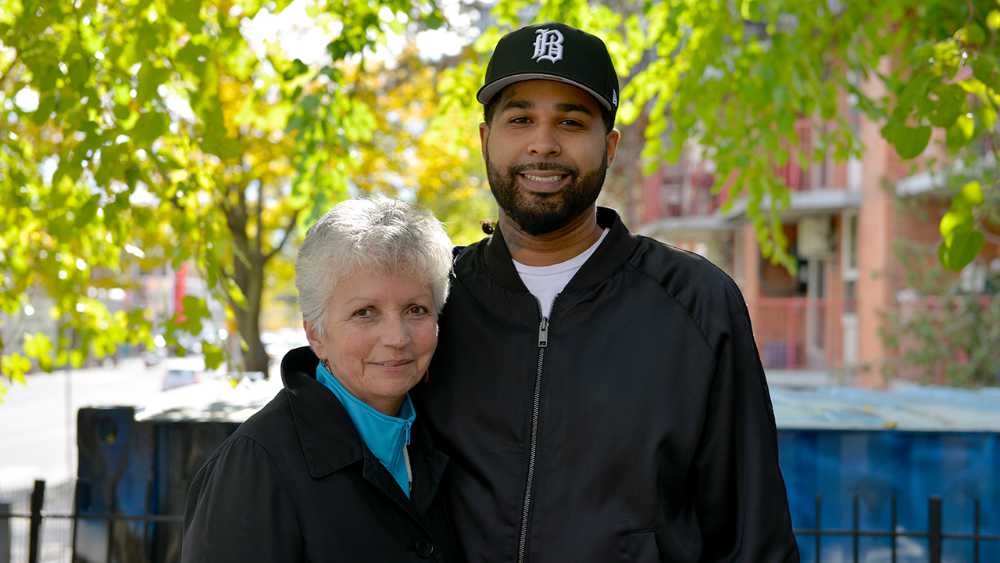
Adrian found connection and community thanks to Bella, his case manager at a United Way-supported Indigenous agency
Adrian had long been seeking a place to belong when he first discovered the Native Canadian Centre of Toronto (NCCT). The Ojibway visual and tattoo artist was experiencing homelessness and in need of a community—but didn’t know where to turn.
“I was introduced to this organization when I was at an unhealthy point in my life,” says Adrian. “It’s unfortunate that I had to reach that point to even know about this type of place.”
When he met Bella, the NCCT Adult Case Manager who helped him find housing and get mental health support, he felt a great sense of relief and belonging. He had finally found the community he’d been seeking.
Bella is Bear Clan, from Moose Factory First Nation, in Northern Ontario. She came to the centre in 1991 as a visitor, and immediately felt at home.
“The laughter I was hearing, the people talking to each other,” she recalls. “I didn’t know who was staff and who was community when I walked in.”
She joined the Indigenous-led organization three years ago as an Adult Case Manager, a position funded by United Way Greater Toronto. She connects community members to housing, mental health and addiction support.
Bella believes that there is an implicit bond formed out of cultural connectedness. This bond allows her to truly listen, understand and value the relationships built with her clients, resulting in positive outcomes.
“I take the time to get to know the person,” she says. “Every one of my clients has succeeded. They’re housed, they’re dealing with their addictions and mental health issues and there has been reunification of families. And why is that? Because we’re real.”
Her job isn’t simply about doling out advice, she says. “We’ve all gone through life experiences where we face grief, joy and anger. We’ve experienced all of those emotions. Be real, you know? Be with someone. Hear them.”
Relating with Bella is what Adrian appreciated the most about working with her. “Me and her have a genuine personal connection, because we actually share some of the same experiences,” he says. “That’s how we were able to establish a real relationship.”
But connecting with people proved difficult during the pandemic, leading Bella to get creative to safely meet with clients, often visiting with them outside. Not only was she helping her clients navigate the upheaval caused by the crisis, but she also saw a surge in need in the community.
“The calls haven’t stopped,” she says. “There has been a marked increase in food security, homelessness and mental health issues. They have nowhere else to go.”
NCCT’s staff have been working diligently to ensure everyone who seeks their help gets supported, which is why United Way offered NCCT flexible funding so they could adapt their services to address changing needs during the pandemic. United Way further partners with NCCT on youth programs, support for mental health and addictions, and a food program for people experiencing homelessness.
Funding agencies like NCCT—and the culturally sensitive programming they provide—is an essential part of United Way’s efforts to strengthen relationships with Indigenous communities across the GTA.
For his part, Adrian has gotten back on his feet and is caring for his mental health while focusing on his art. In 2023, he curated “Spirit on Canvas” at NCCT, an art show that provided a platform for Indigenous artists from across the GTA to share their work and their stories. He’s currently collaborating on a show in New York City that will focus on creating connections between international communities.
He’s also committed to supporting his peers. “I feel like it’s my obligation now to be the spokesperson for people of my generation to say, ‘we’re here and we have this community. Help is out there. There are resources to help’,” he says. “Finally, I’m where I’m meant to be. Now I can actually focus on creating, and prosper the way I’m supposed to,” he says.